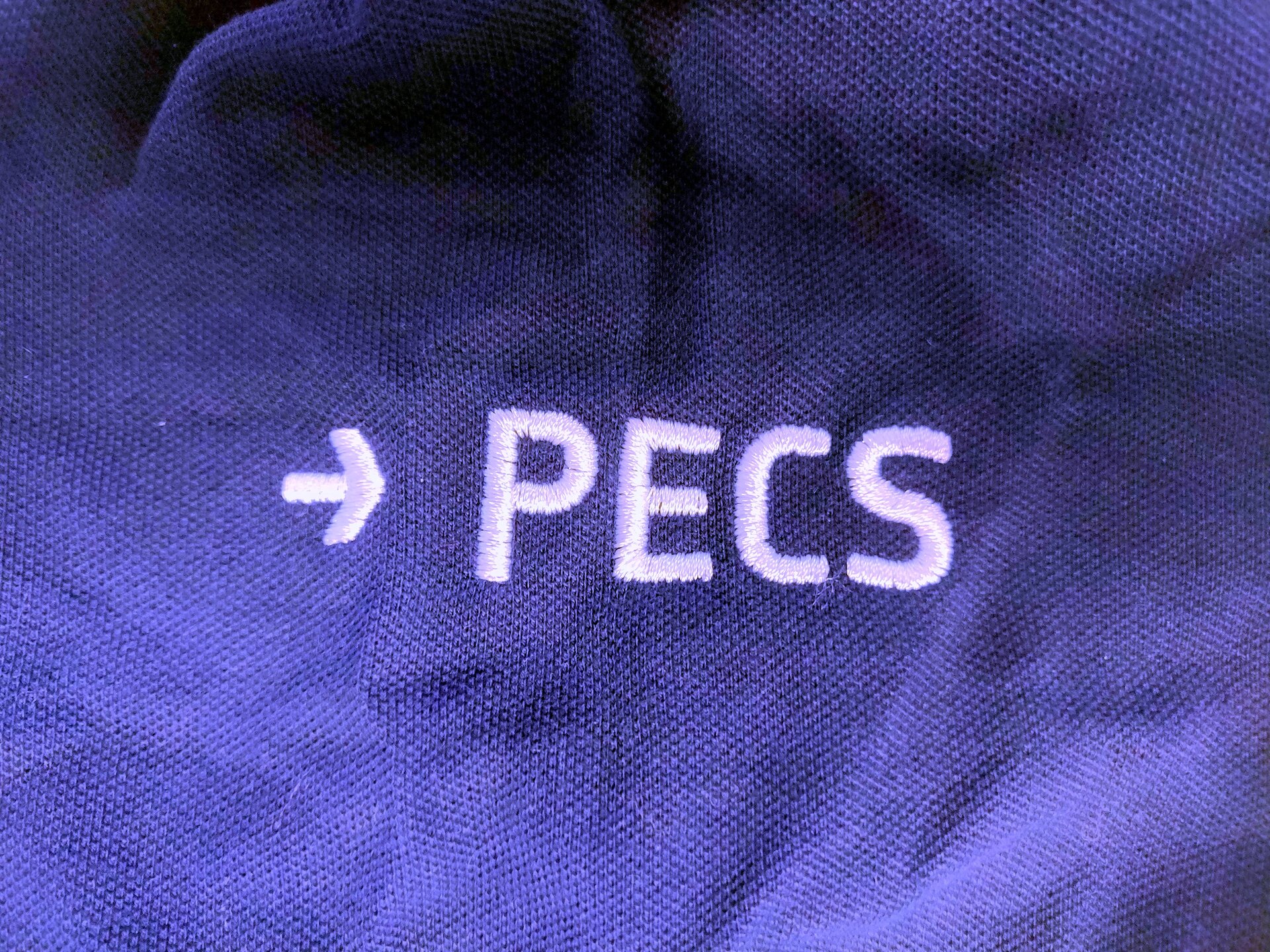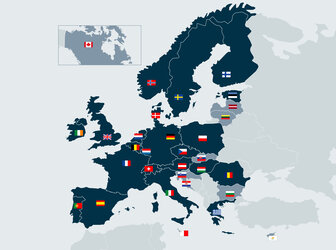General overview
The Plan for European Cooperating States (PECS) is designed to prepare countries to join ESA as an Associate Member State (AM) and later, pending review, as full members.
At present a PECS Charter has been signed by 11 European countries, of which five have since ascended to full membership (Estonia, Czech Republic, Hungary, Romania and Poland), four are now AM (Slovakia, Slovenia, Lithuania and Latvia), and three are currently in PECS (Bulgaria, Croatia and Cyprus).
PECS is helping to stimulate relations with interested European countries, to expand the overall European scientific and industrial base and to enrich ESA as a research and development organisation.
How it works
To be a candidate, a country must be European and must already have signed a Framework Agreement with ESA. If a country wishes to participate more fully with ESA, a European Cooperating State (ECS) Agreement is drawn up.
The ECS Agreement, which allows a country to participate in ESA procurements and activities, should be complemented within a year by a PECS Charter, a five-year plan jointly agreed between ESA and the country concerned.
Under PECS a country contributes of 1.4 M€/yr to ESA (with an option to increase this), the majority of which is returned to the country in the form of contracts to industry as part of Competitive Calls for Outline Proposals published on ESA EMITSseveral times a year.
- After the submission deadline for each call, these proposals are evaluated by a Tender Evaluation Board (TEB) with input from expert reviewers at ESA, before a final programmatic review is made by a Task Force (TF) composed of ESA and the country’s delegation. The Task Force also decides the types of activities and the funding limits for each call.
The five years spent under the PECS Charter enables a country to increase its knowledge of ESA and develop its space industry, thus improving its chances of winning contracts in the future. At the end of the five-year period the progress of the country’s industry will be assessed and a decision will be made by ESA and the respective country on becoming an Associate Member.
History
In October 1999, ESA organised a two-day Workshop in Budapest together with the then Hungarian Space Office, with a view to analysing existing relations between ESA and its partners in Central and Eastern Europe, namely the Czech Republic, Hungary, Poland and Romania.
The Workshop’s main objectives were to discuss the results of the existing cooperation and to present ESA’s new programmes and activities, as well as its administrative procedures and regulations. The space authorities from the four countries also presented their own space programmes and plans.
This meeting led to the creation of PECS.
In September 2001 the Agency held a workshop in Paris with representatives from the four European Cooperating States (ECS). The objective of the workshop was to present the different possibilities existing through this newly created ECS status and to understand the different views and possible concerns of our partners in order to proceed, on a bilateral basis, with the negotiations of the ECS Agreement with each interested country.
ECS Agreements were finalised with Hungary, the Czech Republic and Romania. Hungary became the first country to convert the agreement into a PECS Charter in 2003, followed by the Czech Republic in 2004. Romania was the third in 2006. Poland became the fourth Cooperating State signing a PECS Charter in 2008.
The original four PECS countries were joined in 2010 by Slovenia and Estonia, and then later the five current PECS countries: Latvia (2013), Lithuania (2014), Slovakia and Bulgaria (2015), Cyprus (2016), and most recently Croatia in 2023. Currently, Malta is the next candidate country to become PECS.
Capability & Country Support Division (CIP-IC)
The Capability & Country Support Division manages the integration of all PECS countries alongside the respective country delegations (as well as AM and NMS). The section exists to help cooperating states identify the type of ESA projects that are the most suitable to their industries, to provide training to the entities in the country, and to facilitate the Calls for proposals.
For further information on the PECS Programme, contact:
Stephen Airey
Head of Division Capability & Country Support
Tel. +31 (0) 7156 55295





